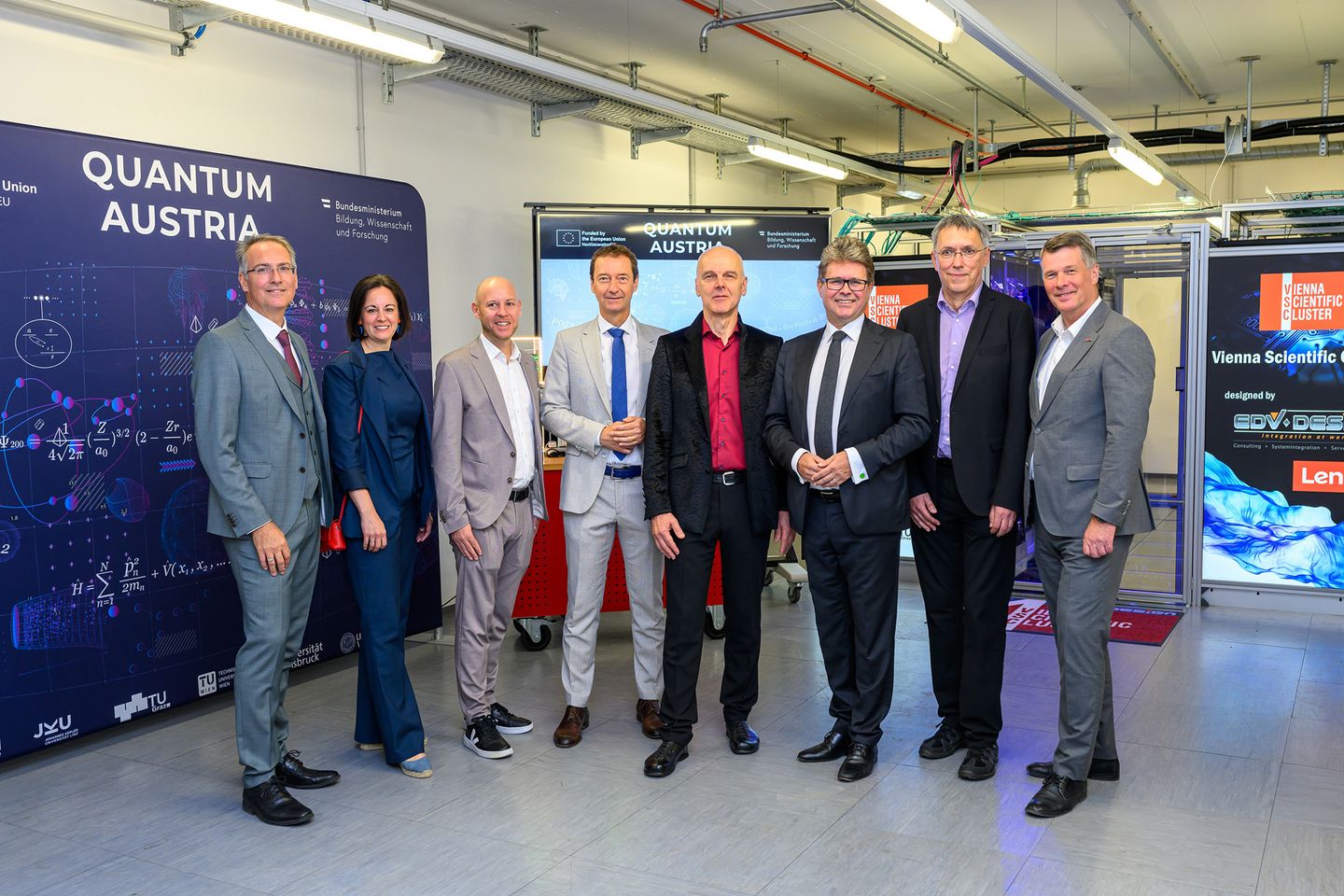
Co-located in Innsbruck, Linz, and Vienna, MUSICA promises enhanced performance for AI applications; construction has now begun at Science Center Arsenal in Vienna.
Nowadays, cutting-edge research in any domain heavily depends on access to high-performance computing (HPC) resources. In Austria, the HPC infrastructure is now set for a significant expansion with the Multi-Site Computer Austria (MUSICA) – a computer cluster that will operate simultaneously at the locations in Vienna, Linz, and Innsbruck.
Until now, Austria's most powerful supercomputers (the Vienna Scientific Cluster, VSC) have been operated jointly by several universities at one location, with online access for all participating institutions. With the innovative MUSICA project, however, computer hardware will be distributed across several locations, combining HPC with cloud computing.
The part of the cluster located in Vienna will have 112 GPU and 72 CPU nodes. The parts in Innsbruck and Linz will each have 80 GPU and 48 CPU nodes. The hardware is supplied by Lenovo, the storage by MEGWARE. Users who perform particularly data-intensive calculations, such as training artificial intelligence models and analyzing large amounts of data, will benefit most from this architecture.
Performance
With MUSICA, users will gain significantly more computing power: The previously fastest supercomputers in Austria, the VSC-4 and VSC-5, together provide a performance of 5.01 PFlop/s (computing operations per second). The new cluster will reach approximately 40 PFlop/s, which will make it one the most powerful systems worldwide at the time of the launch.
The distribution of the system across three locations is intended to increase resilience. All three locations will be centrally configured and managed, but can also be operated completely autonomously. For users, MUSICA will be accessible as a single HPC system.
Cooling and energy efficiency
The MUSICA system is predominantly direct water-cooled: the heat dissipation is done using water-cooled elements on processors, GPUs, and memory, which significantly reduces the energy required for cooling. With high water temperatures of about 40°C, waste heat can be dissipated directly to the ambient air almost all year round without additional energy-intensive cooling devices. The high cooling water temperature allows the reuse of waste heat. In Vienna, this is used to heat neighboring buildings.
At the Innsbruck site, waste heat will be fed into the district heating network. In Linz, the cooling infrastructure is still being planned.
Thus, the operation of MUSICA allows for maximum computing power for science with minimal energy consumption, setting new standards in energy efficiency at the cutting edge of technology.
Accelerated by quantum computing
The MUSICA project is funded under the European Union's Recovery and Resilience Plan and the Quantum Austria initiative, with additional funding from The Federal Ministry of Education, Science and Research (BMBWF) through The Austrian Research Promotion Agency (FFG). Thus, MUSICA is also a central part of a fully integrated, hybrid infrastructure for quantum and HPC computing.
The University of Innsbruck is currently procuring a new quantum computer, which will be connected to MUSICA in the future, further accelerating the system. A proof of concept with the existing local systems has already been successfully implemented.
Outlook
The installation of MUSICA in Vienna is currently underway. The system is scheduled to enter the test phase in late autumn 2024. Regular operation is expected to begin in January 2025. For Innsbruck and Linz, construction will take place in the first half of 2025. Regular operation is expected to start there in July 2025.
Partners
The following Austrian partners are involved in the MUSICA project: TU Wien (project coordinator), University of Vienna, University of Natural Resources and Life Sciences (BOKU) Vienna, University of Innsbruck, Graz University of Technology, and Johannes Kepler University Linz.
Technical specs for MUSICA at locations in Vienna, Linz, and Innsbruck
Press release of TU Wien (German)